Published Feb 11, 2023
'Far Beyond the Stars' Was Star Trek at its Boldest
A fan examines how Deep Space Nine's storytelling addresses issues we still face in modern society.
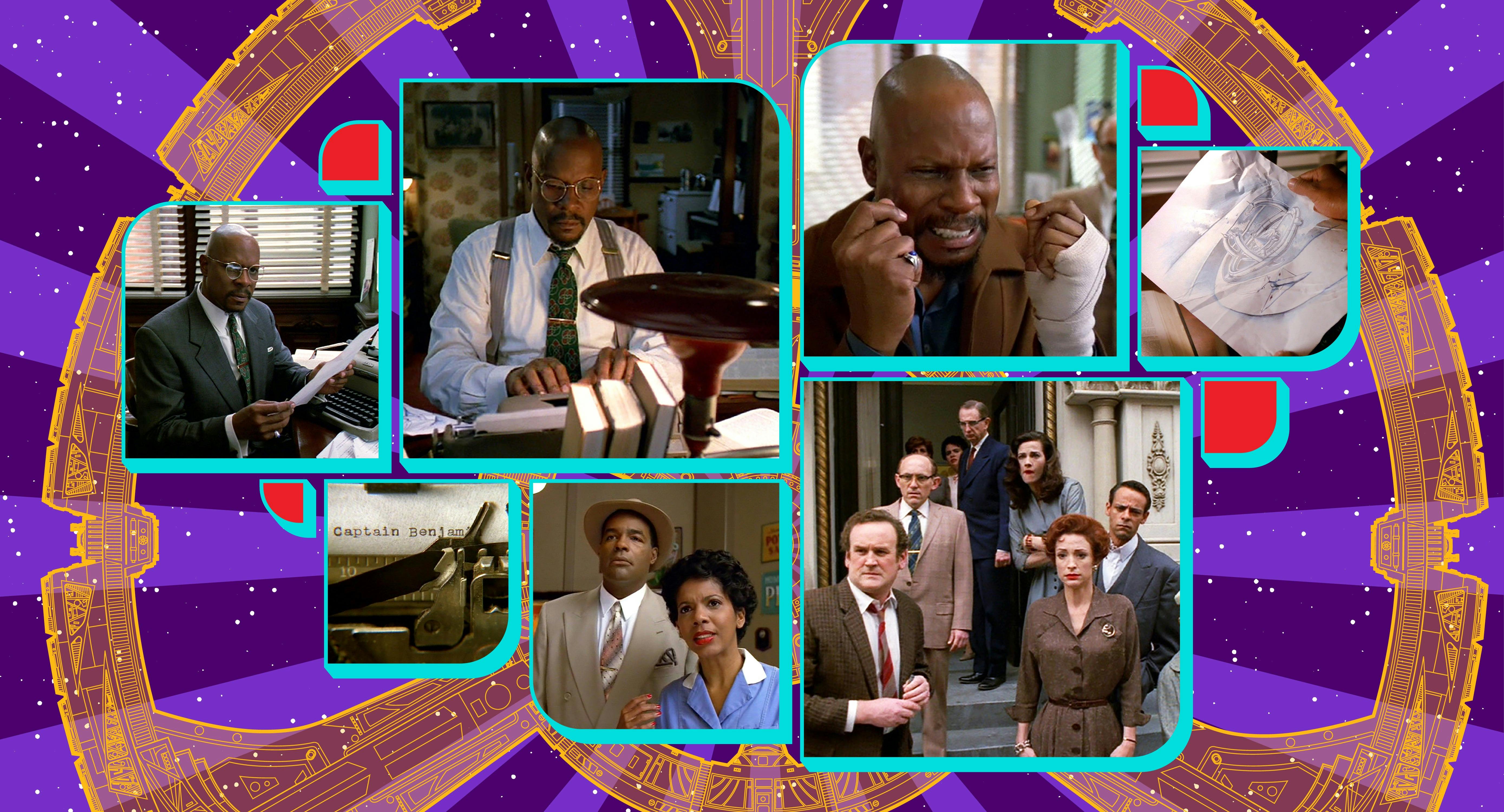
StarTrek.com
Social issues have been at the forefront of Star Trek’s storytelling for more than five decades. At times, this has happened through overt metaphors and allegories. Other times, this has been accomplished more through symbolic imagery. From its beginning in the 1960s, the Bridge crew of the U.S.S. Enterprise, under the command of Captain Kirk, was a rebuff to the evil of racism. The crew symbolized human diversity embodied in an African-American woman communications officer, an Asian-American helmsman, and a Russian ensign who challenged Cold War presumptions.
The violence, bigotry and ignorance of racism, sadly, have not been eradicated, and over the decades, Star Trek has continued to be bolder in its narratives which address this blight upon our society. To my mind, this emboldened storytelling is most poignantly seen in Star Trek: Deep Space Nine's “Far Beyond the Stars.”
Star Trek History: Far Beyond the Stars
This episode sees Captain Benjamin Sisko begin to hallucinate while speaking with his father and later while he’s walking with down a corridor with Kasidy Yates. He sees figures that appear to be humans from the 1950s walking around the space station. Eventually, Sisko finds himself in the personality of Benny Russell, a science-fiction writer living in New York.
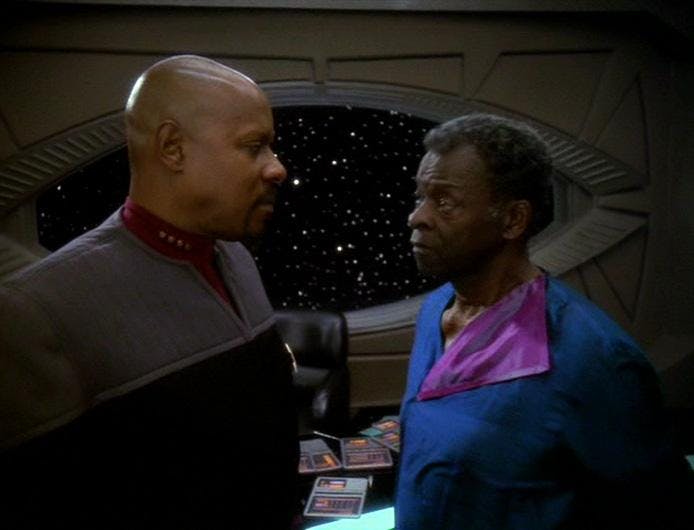
StarTrek.com
The episode's story is largely told from the perspective that Benny is a real person and his experiences are wholly embodied and conveyed for the audience in Avery Brooks’ stunning performance and directing. Benny is a struggling writer living in 1950s Harlem and longs to tell meaningful stories. His experiences are those typical in his community.
He conceives stories of the Deep Space 9 crew and aims to share a hopeful vision of the future by chronicling the exploits of an African American captain commanding a space station. The episode concludes with the possibility that DS9 is in actuality entirely conceived in Benny’s mind; there appears to be a special temporal connection between Sisko and Benny, possibly enabled through the former’s neural pathways, which have been affected by the aliens known as the Bajoran Prophets.
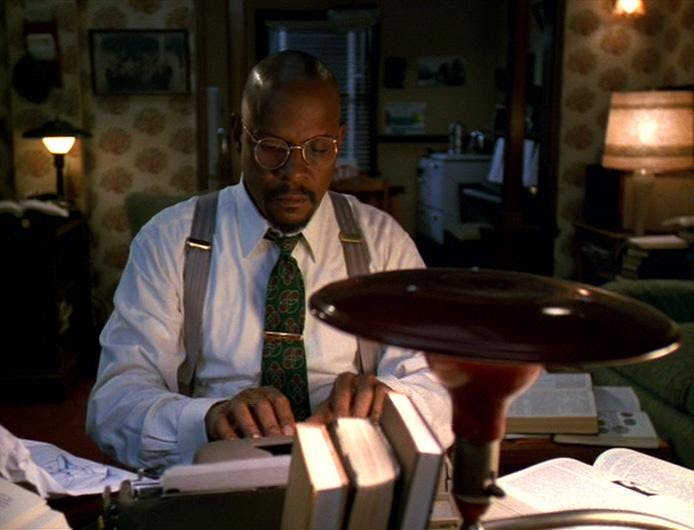
StarTrek.com
In one scene, he is stopped and harassed by white police officers. They take his property and threaten him with physical harm despite him having done nothing but drop a drawing on the sidewalk. This is a promise they would later make good on as they beat Benny severely after shooting and killing Benny’s young African American friend.
In an episode that aired over 20 years ago, the situations here portrayed in Benny’s life ring out with a distressing contemporaneity. The scene echoes the daily experience of so many African American individuals walking in urban centers today that simply do not correlates for those, like me, who are white and walking those same streets undisturbed and without fear of confrontation or violence from authorities. The difference occurs not because I am better behaved, but because my skin pigmentation is not held under suspicion or contempt.
Benny wants change and the liberation of his community. Even with colleagues and fellow writers who are supportive and accepting, the chief editor tells Benny that his stories of an African American captain will not be accepted. The editor notes that he may not like the way things are, but that this is the way things currently are. In essence, Benny is told to wait until things get better.
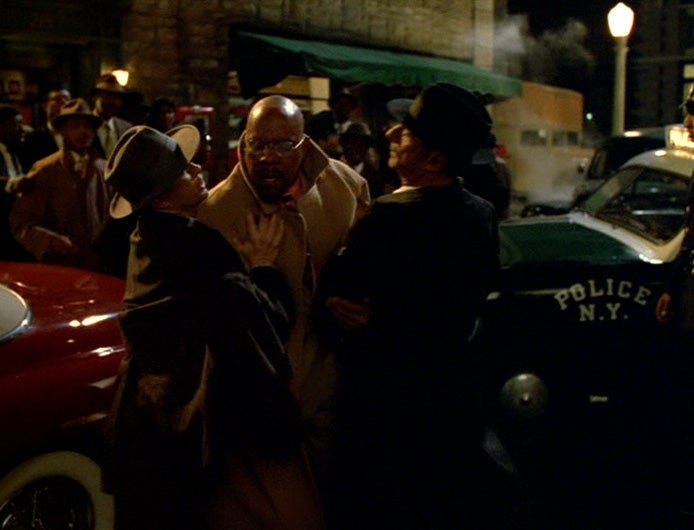
StarTrek.com
Writing from a Birmingham jail in 1963, Dr. Martin Luther King Jr. stated, “We know through painful experience that freedom is never voluntarily given by the oppressor; it must be demanded.... For years now, I have heard the word ‘wait’! It rings in the ear of every Negro with piercing familiarity. This ‘wait’ has almost always meant ‘never.’”
Dr. King was all too aware of the attempts to pacify movements of justice with a “wait.” As he notes, those who benefit from systems of injustice and the perpetuation of racism will not easily change. There is never a convenient moment for those with privilege to surrender their elevated status. Words such as “I value the right to protest” are uttered, and then those who breathe those same words criticize the nonviolent demonstrations of oppressed communities as “disrespectful.” There is never a time to march or to take a knee if it questions those who benefit from the current state of things. “Wait” actually means “never.”
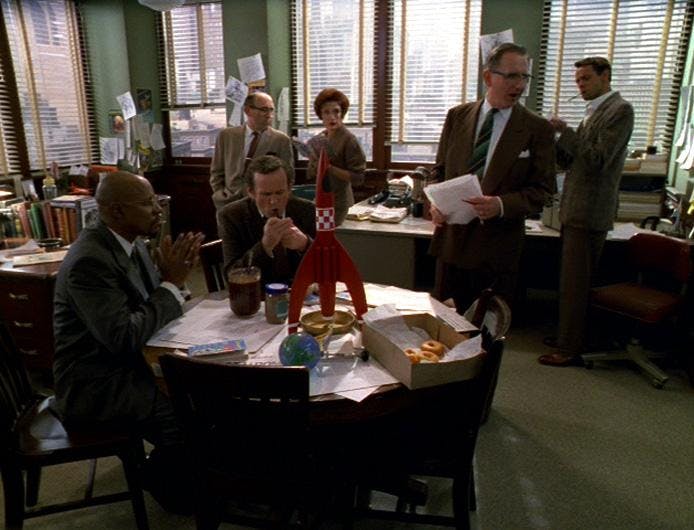
StarTrek.com
At the apex of the episode, Benny discovers that his story will not be published. The owner of the publication, Mr. Stone, pulped the issue with an African American leader. The white man in power shredded the future envisaged where one’s societal role and how one is viewed has nothing to do with skin pigmentation. This is too much for Benny. He has been beaten once too often, both physically and psychologically.
The editor states, “It’s not about what’s right. It’s about what is.” Once more, Benny is told to wait. To ensure Benny’s voice is silenced, he is then fired. The editor removes personal culpability by saying, “I have no choice.” So often those who enjoy the safety of their position placate their inactive conscience with “What can I do?” or “I have no choice.” In this setting, the audience can see how this only serves to further harm Benny.
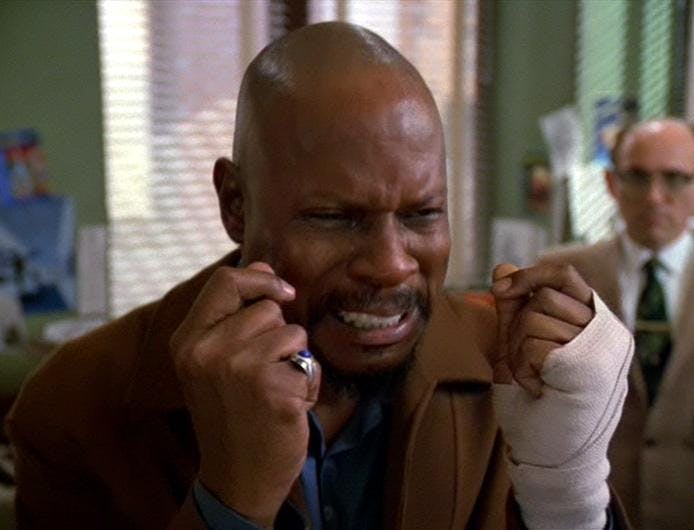
StarTrek.com
Benny seizes his agency back from both his white peers and his white enemies. He quits and yells, “To hell with you!” Even here, his white friends encourage pacification. “Try to stay calm, Benny,” one says. Even allies and friends tell him to wait. Benny heatedly responds, “No. I’m tired of being calm. Being calm never got me a damn thing!”
This, too, echoes the words of Dr. King from the same letter. “I had also hoped that the white moderate would reject the myth concerning time in relation to the struggle for freedom... the strangely irrational notion that there is something in the very flow of time that will inevitably cure all ills. Actually, time itself is neutral; it can be used either destructively or constructively.... We must use time creatively, in the knowledge that the time is always ripe to do right.” Benny argues that you can pulp a book, but not an idea. He argues that the time is now to act on that idea.
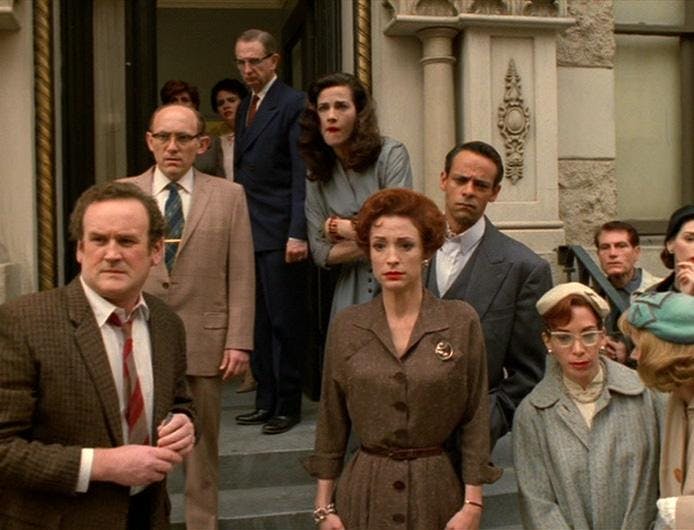
StarTrek.com
Dr. King notes that there will never be a convenient time for those who benefit from the current institutions and actions of racism and injustice. He also stresses that the time is always right for just action and dismantling practices and structures of bigotry. Dr. King further insists that generations will have to repent, not only of the actions of bad people, but also of the “appalling silence” of good people. Benny is desperate for justice. He rejects the injustice of his oppressors and the silence of the ones who remain in their private enclaves safe from the lived realities of those they call friends. Benny weeps the words, “I am a human being.”
Inaction in the face of unjust violence is complicity with that same violence. Dr. King wrote that while it is wrong to use immoral means to achieve moral ends, it is even more wrong to use moral means to preserve immoral ends. Benny writes stories of a better future that cast him back upon the unjust present where he must continuously fight for recognition of his humanity. That future, embodied in Sisko and the others on DS9, is a diverse, equitable future worth fighting for. But as long as a shred of racism yet exists so too must the fight against it. Not until bigotry and the institutions that perpetuate it are exiled far beyond the stars can we rest.
This article was originally published on May 26, 2018.
Timothy Harvie (he/him) is Associate Professor of philosophy and ethics at St. Mary's University in Calgary, Canada. His interests lie primarily in philosophical theology, political philosophy, environmental and animal philosophies, and ideas of the role of hope in society. He is a lifelong Star Trek fan.
Stay tuned to StarTrek.com for more details! And be sure to follow @StarTrek on Facebook, Twitter, and Instagram.

